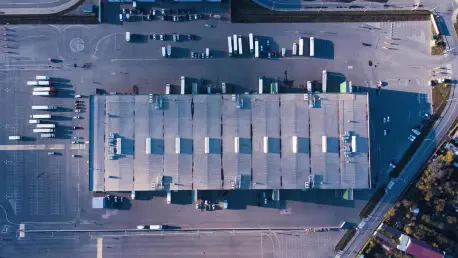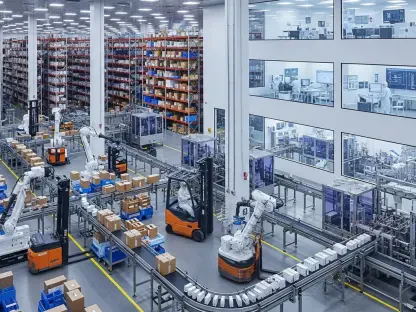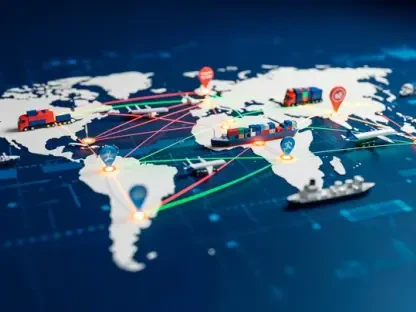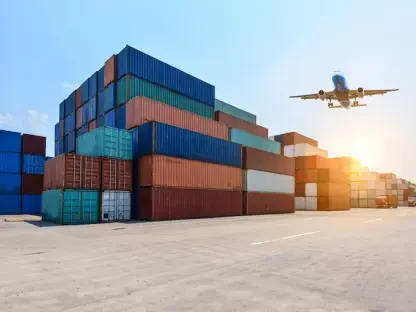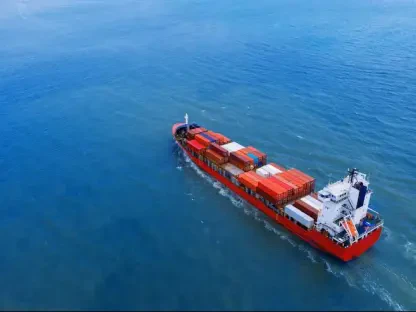The Port Klang Free Zone (PKFZ) is at the forefront of a transformative journey focused on evolving into a smart and sustainable logistics and industrial hub. The recently unveiled PKFZ 2.0 master plan outlines an innovative 10-year strategy centered around incorporating cutting-edge technologies and broadening service offerings beyond traditional warehousing. Emphasizing digitalization and artificial intelligence, the plan aims to augment security measures and create an environment conducive to investment. This ambitious approach seeks to align PKFZ with Malaysia’s broader sustainability and innovation objectives, enhancing its connectivity in global supply chains. Through strategic partnerships and infrastructure enhancement, PKFZ intends to expand its influence by diversifying services and increasing occupancy rates. With environmental sustainability also playing a key role, the plan underscores a commitment to green development initiatives, making PKFZ an exemplary model of an advanced logistics hub prepared for future challenges and opportunities within the international trade landscape.
Strategic Infrastructure and Technological Advancements
The decade-long vision for PKFZ relies on a comprehensive enhancement of infrastructure and technology, aiming to lay the foundation for a thriving logistics ecosystem. Central to this vision are infrastructure improvements and strategic alliances designed to attract a broader spectrum of investors while maximizing space utilization. This initiative also emphasizes the importance of modernizing logistics operations, leveraging systems such as the Royal Customs Department’s Sistem Digitalisasi Sistem Import Eksport (SDSIE). By streamlining customs processes, the workflow at Port Klang has become more efficient, thus bolstering the efficiency of a hub that manages a substantial share of Malaysia’s cargo transit.
Infrastructure upgrades are further advanced by the development of Westports 2, alongside road enhancements that improve regional connectivity. These expansions not only aim to support local businesses but also strive to draw foreign direct investment into the area. Through these technological enhancements, PKFZ is strategically positioned to become a linchpin in global trade networks, reinforcing Malaysia’s reputation as a key player on the world trade stage. The emphasis on collaborative partnerships also introduces an opportunity to diversify service portfolios and usher in additional services that go beyond mere warehousing.
Comprehensive Township Development and Investor Attraction
Another pivotal aspect of the PKFZ 2.0 master plan is its visionary plan for township expansion, innovatively designed to fortify the industrial ecosystem. The proposal envisages encompassing amenities such as healthcare and educational institutions, creating a holistic environment conducive to business and community growth. Notably, remaining plots are available for development, opening avenues to attract innovative proposals from potential developers. In parallel, there’s a concerted effort to market vacant industrial units to both domestic and international investors, asserting PKFZ’s status as a globally competitive investment haven.
This strategic focus not only fosters a vibrant industrial culture but also strengthens Malaysia’s broader industrial goals. By seamlessly integrating valuable services into the logistical framework, PKFZ is positioned to be an attractive proposition for investors who are keen to capitalize on the robust infrastructural promise of the region. Ultimately, these efforts ensure PKFZ remains at the cutting edge of industrial evolution, offering vast opportunities not merely for investment but also for the sustainable growth of local and international businesses.
Environmental Stewardship and Long-Term Sustainability
Environmental responsibility is a cornerstone of the PKFZ master plan, as evidenced by the introduction of a Green Port Policy that positions the zone at the intersection of trade and sustainable environmental practices. This policy reflects an alignment with Malaysia’s overarching environmental, social, and governance goals, essential for fostering an ecosystem where economic growth and environmental stewardship coexist. The initiative is further reinforced by Malaysia Digital, with investments in data centers and cloud infrastructure aimed at reaching a throughput target of 15 million TEUs.
This endeavor highlights PKFZ’s commitment to being a digitally progressive location while underpinning Malaysia’s pivotal role in global trade. The holistic strategy presents PKFZ as an exemplar of integrating advanced technology with sustainable practices, paving the way for a new era in logistics management that is both environmentally conscious and technologically secure. As an integral part of the national economic framework, PKFZ is strategically enhancing its resilience, showcasing Malaysia’s capacity to navigate future economic challenges effectively.
Conclusion: Anticipating Future Success
The Port Klang Free Zone (PKFZ) is embarking on an innovative journey to become a smart and sustainable logistics and industrial hub. The newly introduced PKFZ 2.0 master plan lays out a forward-thinking 10-year strategy that integrates advanced technologies and expands services beyond traditional warehousing. By prioritizing digitalization and artificial intelligence, the initiative aims to strengthen security and create a favorable environment for investment. This strategic vision seeks to align PKFZ with Malaysia’s broader goals of sustainability and innovation, enhancing its role in global supply chains. Through forming strategic partnerships and boosting infrastructure, PKFZ aims to amplify its influence by broadening services and boosting occupancy. A significant focus on environmental sustainability highlights a commitment to green development initiatives, positioning PKFZ as a model of a modern logistics hub poised for future challenges and opportunities in the global trade arena, paving the path for an advanced, future-ready logistical network.
